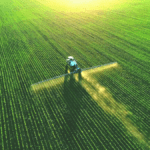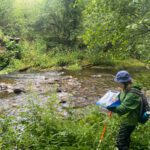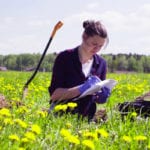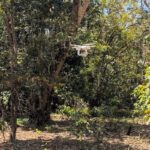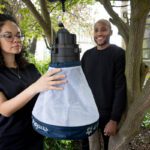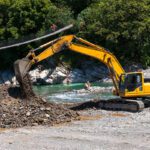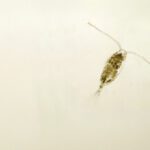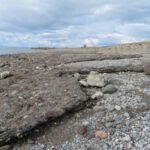World-first maps inform call for better protection of underground fungal networks
Scientists have released the world's first high-resolution, predictive biodiversity maps of Earth's underground mycorrhizal fungal communities, which they explain shows that over 90% of...
Scientists issue urgent call ahead of final plastics treaty talks
With the final round of UN negotiations on a global plastics treaty fast approaching, a group of over 60 leading scientists from around the...
Environmental impact of common pesticides seriously underestimated, finds research
The environmental impact of nine pesticides, commonly used in grape cultivation, may have been significantly underestimated, suggesting current pesticide risk assessment criteria need updating.
The...
AI-enabled digital twin will support coral reef restoration in Saudi Arabia
A recent project leverages AI expertise to enhance coral monitoring and restoration strategies across a 100-hectare reefscape in the Red Sea. The groups behind...
Groups celebrate decade of wildlife gains on UK farmland
A decade-long nature-friendly farming project has helped to increase the diversity and abundance of wildlife across farmland and prompted the return of rare species...
Microplastics are everywhere, but our methods to track them are all over the place
A new study suggests citizen science holds untapped potential in measuring microplastic pollution, but chaotic research methods may be clouding the global picture
The study...
Shrinking saltmarshes threaten climate progress, but recovery is possible
The world’s saltmarshes are disappearing three times faster than forests, threatening global progress on climate change goals, according to a major new report co-led...
Research reveals butterflies are bouncing back in South Downs National Park
People are being encouraged to come to South Downs National Park’s ReNature Festival (22 to 29 June), as new ecological data appears to reveal...
Restoring Britain’s seascapes: study calls for urgent habitat reconnection to meet climate and biodiversity...
Scientists warn that the future of our oceans and climate goals depends on reconnecting the ecological threads that hold coastal habitats together.
The group behind...
Nature coalition calls for nationwide network of river corridors
A coalition of nature charities is calling on the government to create a large-scale network of connected, nature-rich river corridors across the country.
In its...
Four in five ecologists in England feel undervalued by government, industry survey finds
An overwhelming majority of environmental practitioners in England feel grossly undervalued by politicians, the public and other professions, according to a survey conducted by...
New method to evaluate ecological impact of offshore activities
A recently published study from the University of Aberdeen presents a new approach to evaluating the ecological impacts of offshore activities.
By integrating a dynamic...
Wild camping still allowed on Dartmoor following Supreme Court decision
A tent at Foggintor quarry, Dartmoor.
The UK Supreme Court has dismissed (on 21 May) against the rule on whether people have the legal right...
Conservation targets exceeded with the help of geospatial technology, says National Trust
The UK is one of the most nature depleted countries in the world. One of the country’s largest landowners, National Trust says it is...
Robotics and kelp farming project aims to boost biodiversity and carbon capture
A recent project brings together kelp farming and underwater robotics to monitor and restore aquatic ecosystems. The work seems to present a novel and...
Tree-mendous potential of inexpensive drones to help community forests flourish
Small, inexpensive drones could hold the key to unlocking affordable access to the kind of carbon monitoring necessary to access carbon and nature payments...
Mosquitoes reported from all across Scotland by citizen science project
Scientists at the University of Glasgow have received more than 700 reports of mosquitoes from across Scotland, including from Dumfries and Galloway in the...
Government attempts to reduce environmental protections in planning bill could breach international law, says...
The government’s flagship Planning and Infrastructure Bill could be in breach of international law, according to new legal advice from a leading KC.
Planning and...
Mixed microplastic blend may be substantially more toxic for marine life
A new study indicates that a mixed microplastic blend may be substantially more toxic than a single polymer on a key marine food-web species.
Due...
Industrial waste is turning to rock in just decades, research reveals
An aluminium tab from a drinks can found encased in a new form of rock on the Cumbrian coastline has helped provide scientists with...




